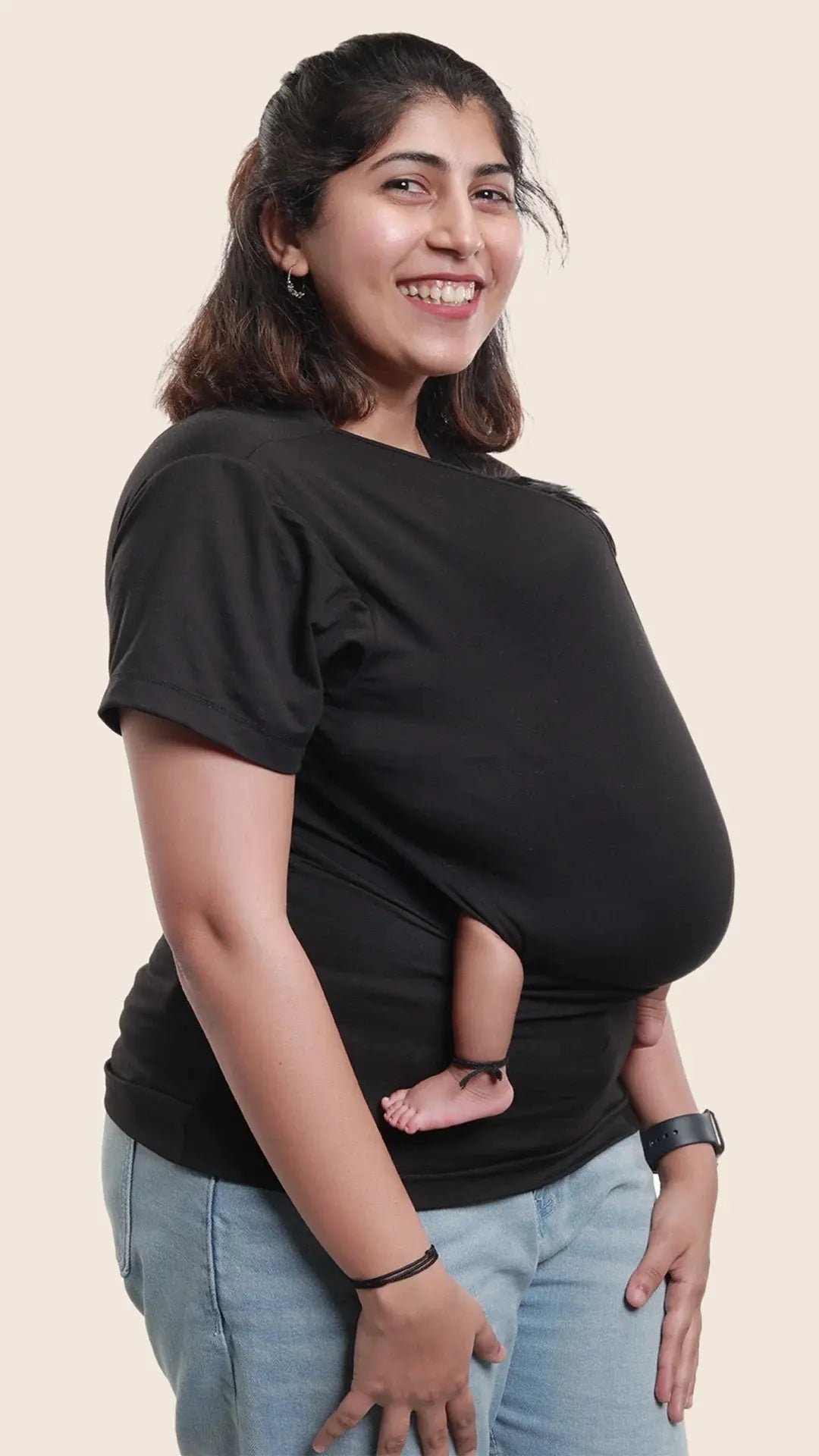Ah, the chest — soft, warm, rhythmic, and yours. From the moment your baby enters the world, one thing becomes clear: they don’t want to be anywhere else. Not in the bassinet, not in the crib, and not in that pricey baby swing you spent hours researching. No — your baby’s favorite place is, without question, your chest.
Why Is Your Chest So Appealing to Your Baby?
Let’s break it down: your chest is familiar, warm, and comforting. It sounds like home. For nine months, your baby lived inside your womb, lulled by the steady thump of your heartbeat and the rise and fall of your breathing. The moment they're born, your chest becomes their natural extension of that safe, enclosed space.
Here’s what’s happening when your newborn curls up and dozes off on your chest:
- They hear your heartbeat, a sound they’ve known longer than your voice.
- They feel your breath, which mimics the motion they felt in the womb.
- They smell your scent, which helps with early bonding and emotional regulation.
- They sense your warmth, which is soothing and helps regulate their body temperature.
So yes, your chest is the deluxe spa suite for your newborn — sound, scent, warmth, and movement all included.
Skin-to-Skin Contact: More Than Just a Cuddle
This is where the real magic happens. Skin-to-skin contact (also called kangaroo care) has been backed by decades of research. It’s more than a feel-good cuddle — it’s biological nourishment.
When your baby lies directly on your bare chest, skin-to-skin, a cascade of benefits unfolds for both of you:
For the Baby:
- Improved Heart and Lung Function: Babies who are held skin-to-skin have more stable breathing and heart rates.
- Better Blood Sugar Regulation: Being on your chest helps regulate glucose levels.
- Faster Weight Gain: It stimulates digestion and leads to better weight gain in preterm infants.
- Better Sleep: Skin-to-skin helps babies fall asleep faster and stay asleep longer.
- Enhanced Brain Development: The sensory input boosts neural activity and cognitive growth.
For You:
- Increased Oxytocin: That "love hormone" spikes, reducing stress and boosting emotional bonding.
- Enhanced Milk Production: Breastfeeding becomes easier and more efficient.
- Reduced Risk of Postpartum Depression: The emotional connection and hormone balance can be protective.
Pretty powerful stuff, right?
The Science of Chest Sleeping: Is It Safe?
This part gets a little controversial. While your baby loves to nap on your chest, many experts caution parents to stay awake during those snuggles.
However, supervised chest sleeping — especially in the early days when you're alert — is not just safe, but beneficial. It’s best to:
- Sit upright on a couch or recliner.
- Keep your baby high on your chest with airways clear.
- Avoid loose blankets or pillows.
- Stay awake and present.
It’s a balance of bonding and awareness. If you're exhausted (which, let’s be honest, you probably are), move the baby to a safe sleep surface before you doze off.
Why Your Baby Cries When Laid Down
Ever wonder why your little one instantly wakes up the second you set them down? Here’s the deal: your chest is their natural habitat. When you move them, their survival instincts kick in. That cold, flat mattress doesn't breathe, beat, or smell like you. So they cry. Not to be manipulative, but because they feel a sudden drop in safety and connection.
This isn't about spoiling your baby. It's about meeting their primal needs.
Think of your baby like a Wi-Fi device — when they’re on your chest, they’ve got five bars of security. Put them down, and boom: “No signal.” That’s why they wail.
Tips to Ease the Transition:
- Warm the sleep surface beforehand with a heating pad (remove it before placing the baby down).
- Use a T-shirt you’ve worn to line the crib — your scent is powerful.
- Wait until the baby is in deep sleep (look for relaxed limbs and slow breathing).
- Start with naps — the more they learn that the crib is safe, the better they’ll adjust.
Your Chest Is the Emotional Charging Station
Here’s another way to look at it: your chest isn’t just a cozy place — it’s your baby’s emotional charging station. Just like we plug in our phones when they’re low on battery, your baby plugs into you when they’re overwhelmed, tired, hungry, overstimulated, or scared.
It’s not a bad habit. It’s emotional refueling.
Whether they’re snuggled in after a feeding or just seeking connection, that close contact fills their emotional cup. Over time, this leads to:
- Better emotional regulation
- Stronger attachment security
- Improved resilience later in life
The best part? You get charged up, too. There’s something powerful about feeling that tiny weight on your chest, hearing those little sighs, and knowing that right here, in this quiet moment, you are their entire world.

Share:
Upgrade Your Toddler Carrier for Daily Comfort
Tired Arms? Try Our Comfortable, Durable Arm Slings Today